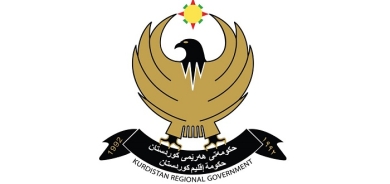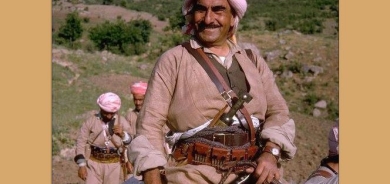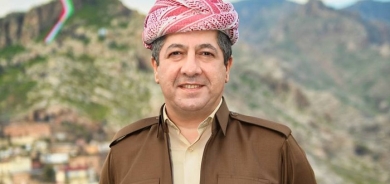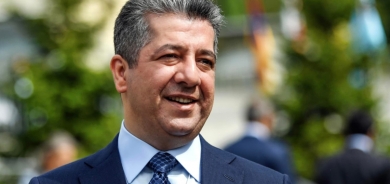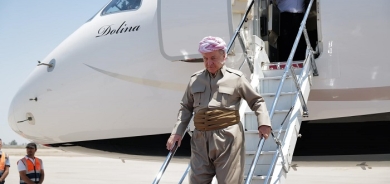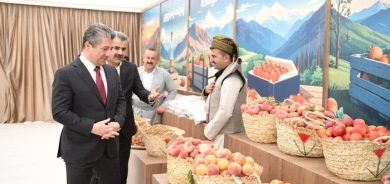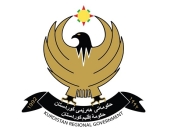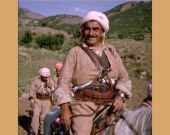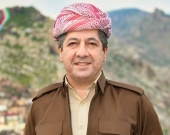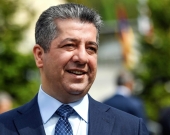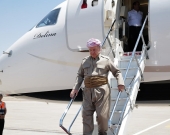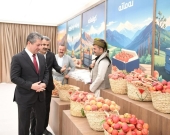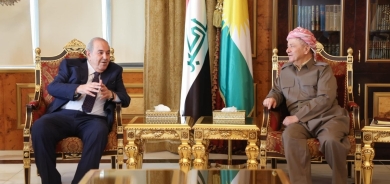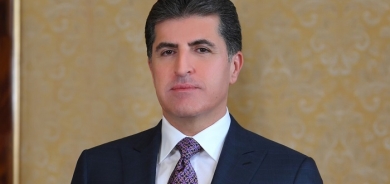Violating the Constitution Led Iraq to Autocracy

As political observers; if we look at the political issues exist in Iraq nowadays; we see that the issues are driving the political process towards a direction which might risk the future of Iraq once again. At this point; when we hear clearing from the main executive authority, the central government in Baghdad we mean; we hear them claiming to implement the constitution in resolving the problems and make the Iraqi Constitution as a final reference for the issues to be resolved with. Therefore; the main question here is; when the Iraqi Prime Ministers “Nuri Al-Maliki” depends on the constitution to solve any existing issue, then; does the issue lies within the constitution or the issue concerns the way of implementing the constitution?
Those who observe Iraq’s situations and are familiar closely with Iraq’s complications, they believe that the understandings of the Iraqi Prime Ministers regarding to the government’s authority is an understanding of using the constitution as a mean or a reason to achieve what himself desire to obtain
Regarding to the answers for the question addressed above, which was the complication of the political process during the last 6 years after the Iraqi Constitution was approved; those who observe Iraq’s situations and are familiar closely with Iraq’s complications, they believe that the understandings of the Iraqi Prime Ministers regarding to the government’s authority is an understanding of using the constitution as a mean or a reason to achieve what himself desire to obtain. In other words; the authorities vested in the Iraqi Prime Ministers by the constitution, instead to be used for the implementation of the constitution, it is rather used by the Prime Ministers to undermine or even to violate the constitution. This also applies regarding to elections, when ballot boxes deliver groups or individuals through democratic processes to power, meanwhile; the same groups or the same individuals use the power of the ballot boxes to oppress and eliminate democracy. In this respect; if we go back to a not distant history, for example Slobodan Milosevic was one of the leaders who reached to power through ballot boxes, but instead to make the Former Yugoslavia as a country for coexistence and tolerance among the different groups, but his dictatorial acts led Yugoslavia to be erased from the world’s political map, and found himself eventually get trailed in the International Tribunal for War Crimes. The same example applies in a way with Vladimir Putin the current President of Russia, since he was elected as Russia’s President through the ballot boxes, but instead to build the Russian State in accordance with institutional state and rule of law bases, he rather led the country towards sort of populism and autocracy, and that’s why the chances are too weak for Russia to be seen as a democratic state, unlike what was expected for Russia before the president Putin. The same example is true for the Venezuelan President Hugo Chavez, the president Chavez reached to office through the ballot boxes, but we see that he too drove the country into autocracy and populism.
That’s to say; the complications of how to reach to power through ballot boxes or the democratic meant isn’t exclusive to Iraq only, or to any other country; yet the problem is specified to all the leaders who are using democratic means to what they are interested in. Therefore; it is very important for us in this respect to go back to the forms of authorities divided by Max Weber into three forms:
First: Direct Authority
In such authorities, sacred traditions and rituals are dependable, such as the Church authority where everyone should obey those sacred traditions and rituals, and violating those sacred bases results in rebellion against the faith. These types of authorities are products of religious political authorities, and whether that authority is a Church Authority as it existed in Europe in the Middle Centuries, or as those Islamic Political Parties that exist nowadays and intend to reach to power through elections, The Daawa Party led by the Iraqi Prime Ministers Mr. Nuri Al-Maliki is a good example in this respect.
Second: Embodied Authorities in the Individuals’ Power
Regarding to this form, we all know that the Daawa Party led by Mr. Al-Maliki neither represent the majority of the Shiite Community in Iraq, nor represent the broad-base audience it had in the past; those who considered themselves as supporters and voted for the Daawa Party. Accordingly; this Daawa Party that declared a bloc under the name “The Law State” intends to embody the authorities in the form of law state’s authority and boil down the Law State Bloc in the personality of Mr. Al-Maliki. Meaning; Al-Maliki is the leader that is much different and stronger than the other Shiite leaders and that he deserves to represent the majority of the Shiite Community and use the majority in order to gain democratic governance legitimacy, and to implement autocratic governance through legitimizing democracy, as well as to register both types of dependable direct authorities from the sacred Shiite bases and the embodied authorities in his personality.
These two types of authorities which have engaged humanity for a very long time into instability, unrest, civil and sectarian wars amongst the religions, have motivated the humanity to seek for other alternatives and find other methods and bases for implementing the power which is institutional authority. That’s to say; the third form of authorities is the institutional authority or the authority of the institutions, when the human being himself builds the institutions and operates them in the sake of goodness and the common interests of all the different components of the society. Instead of boiling down the authority in a certain individual’s personality, the authority would be embodied in a tangible personality which is the institutions’ in the governance process. As the well-known French Lawful George Birodi famously asserted: “the authority of the institutions in essence is the authority of the law and the legislation bases are in a way that get harmony with the needs of the social life.” These institutions lies in the framework of civil constitutions of these countries and the people themselves approved it and enacted laws to build the institutions and the institutions function to provide the necessities of political and social life of the society.
Therefore; the legitimacy mentions by all the world’s intellectuals and specialists regarding to the authority, does not consists of defining legitimacy and its recognition only, yet the legitimacy of the authority consists of how that authority can be implemented and embodied though along with constitution’s bases that turn into bases for life’s rules and organizes the country, and it also consists of balance and imbalance, flexibility and hardness in the way the authority is implemented which has reflection in the depth of the social ties amongst the different components of one given society where all of them feel safe and sense their rights under that authority.
But when an authority is formed through the ballot boxes with the existence of a very modern constitutional context in the country, if it failed to function this authority to organize the social ties of the society and to resolve the existing issues and problems among the different components of the society, and if it failed to provide stability and prosperity in the country through the authority it has; then that means that that authority have fell into a great whirlpool and moved away from the concept of institutional authority and from the state of law authority, and also moved away from the democratic authority.
National Broad-Based Government is not Maliki’s and the Daawa Party’s Government
The main problem of the State of Law Bloc led by the Daawa Party and under the leadership of the current Iraqi Prime Ministere Nuri Al-Mailik is that; after the Iraqi Prime Ministers spoke openly on Thursday September the 15th last month, when he commented on Dr. Alawi the head of the “Iraqiyah” List, Al-Maliki said: “Dr. Alawi isn’t an accepted partner within the Iraqi political process.” In spite that the comment itself has sort of autocracy, it also showing us in the same time that the State of Law List and the Daawa Party along with all the political partners in the Iraqi political process including the Kurds, the Shiites, and the Sunnis have fell in a very big issue and they intend to impose his authority upon all the other Iraqi components. Regarding to this topic, we interviewed Mr. Muaayad Taiyib a Parliament Member from the Kurdish Bloc, and we asked him whether the Iraqi Prime Ministers is defining the authority of the main list’s president, the “Iraqiyah” List, as an unaccepted partner in the political process, Mr. Taiyib responded to Gulan Magazine as the following: “we all know that it is unfair for a politician to decide about who is an accepted politician and should participate in the government and who don’t, because the decision belongs to the Iraqi nation in this respect. We all are aware that the elections been held and three major blocs won the elections, and the three major blocs are; The National Alliance in which The State of Law is part of this alliance, with The Iraqiyah List led by Ayad Al-Alawi, and The Kurdistan Bloc’s Alliance. Therefore; the matter can’t be run according to this or to that person’s mood. Ayad Alawi’s List won 91 seats in the elections and today the Speaker of the Parliament, the Deputy of the President of the Republic, and the Deputy of the Prime Ministers are from his list, in addition to many others from the Iraqiyah List occupying positions as ministers and members in the current government run by Al-Maliki as a Prime Ministers. Thus; for such kinds of comments in such critical situations, the politician should not use his own moods, because excluding a politician who’s a partner in the political process isn’t this or that person’s job, it is rather the duty of the politician’s own list to decide whether a politician is accepted or not, not the rival lists.”
Regarding to the extent that this speech by Al-Maliki whether or not was as a reaction due to Al-Alawi’s visit to Kurdistan Region and his meeting with the President Barzani, Mr. Taiyib commented to Gulan and said: “the problem is that there is lack of trust amongst the Iraqi Political Blocs. Meanwhile; I personally consider it as an ordinary thing if Al-Alawi’s visit to Erbil and his meeting with the President Barzani be construed as a plot against another side. Obviously; it is clear that The Barzani is the sponsorship of the initiative which was resulted in the formation of the Iraqi current government and which rescued the political process from loss, thus; it is something normal and usual if the doors of The President Barzani and Kurdistan Region be widely-opened before resolving any given problem and receive any Iraqi politician who’s intend to pay a visit. Not a very long ago, the government and the State of Law Bloc expressed their anger due to the visit of Jordan’s Prime Ministers to Erbil, and here I would like to address a question; do they look at Kurdistan Regional Government as it was seen during Saddam’s times? Does the Federal Government, which is wrongly called by them as a “Central Government”, is it that central government that holds all the powers in its hands? It is not like that of course, Baghdad’s government is called as a Federal Government and the Federal Authorities are within Kurdistan Region’s, Baghdad’s, and the Provinces, and these all are complete each others. So; when a politician visits another politician and a third party thinks that the previous two politicians are plotting against him, then; this shows that the political process does not pass from a normal path and endures in a very deep crisis.”
And regarding to the Kurdistan Region’s demands to implement the 19 points, which is called as “The Kurdish Paper” for participating in the Iraqi government, Mr. Taiyib emphasized that implementing those 19 points considers as a step towards resolving the problems and drives Iraq toward building a very real democracy, Mr. Taiyib commented to Gulan Magazine in this respect as the following and said: “those 19 points were Kurd’s view for the new Iraq. Meaning; not all the 19 points were about the Kurds’ and Kurdistan’s interests, for example; complying with the constitution along with strengthening democracy, I believe that these issues concern the entire of Iraq, even the Article 140 does not concern the Kurds only, yet it includes 8 provinces though, besides running the oil and gas aspect; since the other provinces has similar demands as well regarding to the oil and gas aspect. We have spent a lot of time to converge the Iraqiyah List with the National Alliance and make them get along with each others, but since both sides hadn’t have the will, that’s why we failed. The issue is not about the Oil and Gas Law or even the Article 140, the Kurds sense that there is sort of new dictatorship is in progress, and it is the responsibility of all to decide whether or not we want to return back to what was existed before 2003, when an individual, a small group, or a certain party hold the power and govern Iraq. We; as Kurds, always say openly and clearly that: (we refuse and will never accept any dictatorship to rise once again in Iraq). Since we all know that neither us nor the Iraqi population can gain anything without democracy. This open and clear position of the Kurds is to make sure that no another dictatorship will emerge in Iraq again, because; if we keep silent, then the dictatorship will start with us and then grows and be unstoppable. But if we felt that its danger is growing, and if we knew that we have to give big sacrifices in order to make it stop; then, I think we still in the beginning now and we have diagnosed the symptoms, which is what happening and done by the State of Law Bloc and the government, when they refuse partnership and hold all decisions in their own hands, which is a start for a new dictatorship, which is something that is rejected and unacceptable by us. In the meeting held between the political forces with The President Barzani, all of the attendants shared one common position, and this proves all the allegations wrong and it is response to all the claims saying that there are fractions, crises, and disagreements in Kurdistan Region, and that Kurdistan Region wants to export its own issues to Baghdad. This is not true, because all the Kurds are sharing one common position, on the other hand; the Kurds and the Arabs along with all the different components of Iraq are undesirable to see another dictator rise again in Iraq and hold the power exclusively.”
What Mr. Taiyib have mentioned about how the Iraqi Political Process is going through a crisis, the crisis includes even the internal framework of the National Alliances, in which the State of Law List is part of that alliance. In spite that the Supreme Islamic Council haven’t participated in the government, at the same time; huge disputes exists between the Saddir List and the State of Law Bloc within the National Alliance, and the Saddir List through Muqtada Saddir have threatened several times to withdraw from the government, as they did in Maliki’s first cabinet. In the past few weeks, supporters of The Saddir Bloc have organized a demonstration against Maliki’s government in The Saddir City inside Baghdad and in Kufa City. The demonstrations were held because the three demands applied by Muqtada Saddir weren’t responded. All these issues along with the autocracy practiced by the Prime Ministers weakened the government and made it difficult to be able to resolve any given problem. In this respect, we interviewed the Professor Phoebe Marr, Senior Researcher in the United States Institution for Peace, and a famous historian about Iraq and the Middle East, the professor Marr stated to Gulan Magazine in an exclusive interview and commented about the Iraqi Government as the following: “I believe that at least in Baghdad one of your problems is factionalism, too much concern for the individuals and not enough for the country, and corruption of course, and the government isn’t strong to legislate and to actually take steps and the country as a whole is fragmented. That’s very difficult in Iraq, just remember that democracy and learning democracy is a culture as well as a constitution, and the people have to be vigilant and work very hard at it and hold the government accountability and keep pushing it to be; not only more democratic but more effective. So don’t expect this to happen over night, everybody’s going to have to work very hard. The parliament isn’t effective, I agree with you, and there is too much corruption. And people are going to have to work very hard, both to make sure that the constitution is upheld, and maybe eventually to change some Articles in the constitution, but everybody’s going to have to work very hard to make sure that the human rights and the rule of law and lack of corruption is adhere to. This is not going to happen over night, and democracy never comes about simply because you have a piece of paper. You all have to work very hard, but you do have work to do in Iraq, you have a long way to go there.”
And as the Professor Marr have mentioned, the current actions done by the Iraqi government led to not to be able in taking serious steps to resolve the problems and that’s the reason of why the issues remained unsolved so far and why the political process fell under the danger in a way which there are expectations for the political process not to be succeeded, and the failure of the political process endangers the unity of Iraq. Regarding to the dangers resulting from the failure of the political process and the risks that might fall upon the future of Iraq, we addressed the potential fears to the Professor David Philips, a Senior Researcher in both famous Institutes The Trans Atlantic and The Council of Foreign Relations (CFR), and he is also one of the senior consultants in the US Foreign Department, the Professor Philips have reversed our question and said in his respond to Gulan Magazine: “Let’s assume that the political process is successful to some degree, and that would be adequate for the country to stay united.”
This response made by the Professor Philips in its other side reversibly gives the same meaning regarding to the probability which says that if the Iraqi political process have fail then it will risk the unity of Iraq. But the Professor Philips, as an American diplomat; refused to express his views openly regarding to our question, after we insisted to know other probabilities of the failure of the political process in Iraq, and he simply answered us by saying: “I am not going to answer that question.”
And this response has two-sided meanings; from one hand, in his first respond he replied inclusively, on the other hand; he referred to the day when Iraq fail in its political process, in other word; the failure of the US policy in Iraq. That’s why he refused to answer the second part of our question. But during his answers to Gulan Magazine’s questions, the Professor Philips emphasized about the importance of the constitution and said: “Iraq has a modern constitution that was negotiated by all the parties; everybody went to great lengths to finalize the constitution, and it should endure as the law of the land. But it is important that the conflict not escalate with greater violence, and the parties resolve their differences through negotiations and use of the existing constitution as a road map for the conflict resolution. Iraq is gonna have to stand on its own feet, but there should be a follow-on force that stay in Iraq beyond the deadline for the troop withdrawal, and in the long-term; the United States should consider its strategic interests and the benefits of having a facility base in the Iraqi Kurdistan.”
And regarding to the problems that exist nowadays between Kurdistan Region and Baghdad’s Government about the Oil and Gas Law, and also about the importance of having an American Base in Kurdistan Region so as both sides’ interests can be preserved; the Professor Philips expressed his views to Gulan Magazine as the following in this respect and said: “Dividing the oil and gas revenues has always been as a flash-point for conflicts. A greater challenge is distributing power that protects different groups; these should all be considered as a comprehensive settlement that strengthens Iraq through compromise.”
Regarding to the second part of Gulan’s questions, which was about protecting the United States’ interests in Kurdistan Region, the professor Philips commented as the following and said: “The US can preserve its interests in the Iraqi Kurdistan by intensifying political and diplomatic contexts, and by further strengthening economic cooperation between the West and concerns in Iraqi Kurdistan. West assured that the United States values friendship between Americans and the Iraqi Kurds, and will continue to work cooperatively to advance our mutual interests.”
If we read the comments made by; the Professor David Philips and the Professor Phoebe Marr, both are well-known experts and specialists on the US Policy in Iraq, we see that they are emphasizing on the future of Iraq in two important points:
1. Respecting the constitution and the compliance with implementing that constitution providing it as a fundamental law of the country. In other words; the Iraqi Constitution should be seen as the American Declaration of Independent, and become as an essential base for legislating the laws and resolving the problems.
2. The success of the Political Process and resolving the problems through dialogue and the willingness of the rival parties to agree and accommodation.
But what happens instead is that the current Iraqi government and the Iraqi Prime Ministers Nuri Al-Maliki are deliberately misusing the constitution, and these deliberate acts does not only include his moody attitude when he does what he like and ignores what he don’t, yet; the specialists and the experts on Iraq construe the Iraqi Prime Ministers’ actions as the following:
a. The phrases from the Iraqi Constitution that meet with the Iraqi Prime Ministers’ interests, for instance; the Prime Ministers is the Commander in Chief for the Iraqi Armed Forces in accordance with the constitution, but the Prime Ministers does not use this authority for the sake of Iraq’s safety and stability, he rather use his jurisdictions to prove that he is willing to impose himself by force, and a very visible example for this was the killings and the displacements implemented against the Kurds in Jalawla and Saadiyah, two cities locates within the disputed areas. This phenomenon lasted until the Kurdish Forces (The Pishmargas) went to the area and stopped those brutal actions, and in addition; Chauvinist threats are still on going against the Kurds. All of this is happening in the daylight and the Commander of Chief of the Iraqi Armed Forces keeps silence. Meanwhile; as the Kurdish Forces headed to the area to stop the brutal actions done against the unarmed civilians, we heard comments by parliament members from The State of Law Bloc claiming that the area lies within the jurisdictions of the Central Government, from the other hand and in accordance with the State of Law’s Parliament Members’ understanding; “The Iraqi Constitution clearly allows the Kurds to be genocide again, and no one allow to complain though.” This kind of understanding or explanations of the Iraqi Constitution isn’t undermining the constitution only; yet, it is rather to use the constitutions’ articles and phrases to return back to dictatorship and not to step ahead for building a federal and a democratic Iraq.
b. According to the Iraqi Constitution, the federal government has limited powers with greater powers to the Regions and the Provinces, and as the Professor Michael Knight, Pentagon’s Advisor, expressed his views to Gulan Magazine published in the previous issues of the magazine, he asserted that; when the Prime Ministers’ list needs to gather votes during the elections, he will try to expand the authorities of the provinces, and after the elections he will monopolizes the authorities again. And also; after the elections are done, and for the sake of forming coalitions to form the government, Nuri Al-Maliki will be willing to agree with the participant parties in particular with the Kurds and he will be ready to sign all the points that are legitimate rights of the Kurdish people, but after forming the government he evades himself from the implementation of the agreed points he already signed. Similarly; as he currently evades himself from implementing the 19 points submitted by the Kurdish Alliance and implementing Erbil’s Agreement which was resulted from the initiative done by the President of Kurdistan Region and in which that agreement resulted in the formation of the Iraqi government, then accordingly; The Supreme Council for Strategic Policies should be established and to be run by Dr. Ayad Al-Alawi who was candidate for that position, but since then and so far Mr. Al-Maliki tries hard to terminate the document he signed and cancel that council to be established.
c. Another way the Iraqi Prime Ministers’ deal with the constitution is a moody one, meaning; when he meets with any part of the Iraqi components, he speaks in accordance with their mood and criticizes some phrases of the constitution, the phrases he supported before in other events. For example; only a few months ago, when he met with a delegation representing the Arab Sunni tribes; Al-Maliki stood against the idea of forming the federal regions and defined the federal system as a threat upon the unity of Iraq, while only a few months earlier, and during the declaration of the Iraqi Government, he swore to protect a federal and democratic Iraq and to be compliance with the constitution.
Regaining Trust for Resolving the Problems
Incompliance with the constitution, or better saying; deliberated actions against the constitution resulted distrust to rise amongst all the political components of the political process, and made every party to observe the others with suspicion. A high-level delegation from the government intended to pay a visit to Baghdad for the sake of resolving the problems, but the existing distrust made the delegation to postpone its visit to Baghdad for further notice. And as we heard, they say that the floor isn’t furnished yet and is unsuitable to solve the issues completely, that’s why; the visit of the Kurdish Delegation in this critical situation will not have that result. Regarding to the current situations among the Iraqi Political partners, we have contacted Mr. Mythal Al-Alusi, the Head of the Iraqi “Umma” Party; and in an exclusive interview with Gulan Magazine, Mr. Al-Alusi expressed his views as the following, he said: “the problems that exists now among all the Iraqi political parties, isn’t a political activity or a rival. It is rather an actual issue when its reasons originate from the failure which is now facing the current Iraqi government, which is a very huge failure. Therefore; the issues among the political parties have two sides, the first side is autocracy in implementing the power done by the Iraqi Prime Ministers, meaning; going back to the old policies of Iraq which the Iraqi nation suffered from and which divided Iraq. Another side consists of the attempts conducted by the other Iraqi political parties to the implementation of the constitution and to build democratic bases in Iraq. Accordingly; the issue lies between two mechanisms, a mechanism which intends to drive Iraq into dictatorship, and a mechanism which tries to intercept the dictatorship. Therefore; I find it necessary to press on the wounds honestly and say: due to the complication and tensions created by the Iraqi Prime Ministers, Iraq has failed in its democratic process, and I declare it openly; keeping the current government to perform this way with its failures, the continuous corruption, along with the escalated violence and the killings, need serious position to be taken by the Kurdish Alliance and the other Iraqi political parties and they should hold themselves responsible in this critical situation, because keeping silent for this situation is a crime committed against the Iraqi people. Thus; my message to the Kurdish Alliance, the Iraqiyah List, and to all the parliament members is honest and open in the same time; I call them to intensify their efforts in order to activate the democratic process through an effective government which is compliant with the Iraqi Constitution.”
Mr. Al-Alusi and as an Iraqi politician was aware about the initiative done by the President Barzani and Erbil’s Agreement which resulted in forming the current Iraqi Government, he defines the President Barzani’s initiative as rebuilding trust and as connecting bridge which gathered Iraq’s different political parties. And he also says that although Mr. Masoud Barzani the President of Kurdistan Region have succeeded in gathering the political parties to be agreed on an agreement, but the agreement parties, in particular the Prime Ministers himself were not very helpful to implement the agreement as it suppose to be. In this respect and during his interview with Gulan Magazine, Mr. Al-Alusi said: “what happened in Erbil, which resulted in Erbil’s Agreement, according to me; it contains one important point only, which is the personality of Mr. Masoud Barzani the President of Kurdistan Region. No doubt; the personality of Mr. Masoud Barzani is considered by all as a source of trust. We all knew Mr. Barzani as an honest, committed, and faithful man; he doesn’t like people to evade from what they already signed to implement or to be in compliant with. Therefore, and from this perspective; I would say that Erbil’s Agreement resulted from the personality of Mr. Masoud Barzani in rebuilding trust amongst the Iraqi political parties. And also; the agreement which was entered have been done through that trust and those suggestions provided by Mr. Masoud Barzani to resolve the problems. Later on; all the parties approved and signed it. So that; maybe, and it is usual for people to criticize the agreement or to criticize the mechanisms in which the agreement is implemented, but no one in Iraq can stand against the legitimate rights of the Kurds in the new Iraq. Furthermore; no one in Iraq can question Kurdistan Region as a pride and the rescuer of the Iraqi State. That’s why; we are not with; or we even don’t accept the idea of using the force to takeover others’ rights. Thus; those who think this way are; either crazy or authoritarians. And now; if we return back to the reasons of why Erbil’s Agreement still unimplemented, I would repeat myself again and would say that the reasons are due to the lack of trusts amongst the political parties, and Mr. Masoud Barzani have succeeded to become as a source for regaining trust amongst all the different parties, and he gathered all of them under his trust, but the one who made advantages from that trust was Dr. Al-Maliki and his supporters in Baghdad, when they tried to exploit that conditions for their own interests, instead to use Erbil’s Agreement as a base to form a national co-partnership government, they rather deceived the agreement, abandoned it, and left it unimplemented. I would say it frankly; if this agreement is not implemented, we will be accomplice in the crime, the failure I mean that faces this government.”
Regarding to the way the current situations of Iraq can be organized and the way ethnic and religious conflicts can be avoided, Mr. Al-Alusi emphasized that there still persons exist in Baghdad who don’t understand the concepts of statehood, state governance, and the relations between the different components of Iraq. In this respect; Mr. Al-Alusi commented to Gulan Magazine and said: “many of the politicians exist nowadays in Baghdad aren’t matured politically, they are naive and inexperienced, and they even don’t understand yet the meaning of the Iraqi State, and they also don’t realize the fact that Iraq will not be existed without its main components. Excluding one of the components means undermining Iraq as a whole. In other words; it means the extinction of the Iraqi State. Therefore; I believe in this respect that:
1. The Central Government or the Prime Ministers aren’t entitled to impose their own personal intendancies upon any certain component of Iraq outside the framework of the constitution, whether that certain component is the Kurds, the Sunnis, or even the Shiites.
2. The current Iraqi Government shall realize the fact that this government is the product of democratic elections. Thus; it should be careful not to use any undemocratic terms and not to decide solely about who is entitled to govern and who don’t.
3. If any given person or any specific side try to use force or war mechanisms, or try to engage the different Iraqi components into a civil war, in such cases; the Iraqi nation have to realize that such people should not be respected and they should be excluded. I personally often see along the way between Baghdad-Kirkuk highway huge deployed military force, and the question is; what are the reasons behind deploying these huge forces? What sense does it make in making this military show? Is it due to a senior official visiting the city?
4. Iraq does not exist without the Kurds, also without the central Iraq or even the south or the west or the Iraqi citizens as well. Therefore; the government shall learn the logic of respecting all the people as well as all the different components of Iraq.”
What Mr. Al-Alusi mentioned was a very important reminder about avoiding Iraq to go back to dictatorship again. That’s why and in the same topic, we interviewed Mr. Mufeed Al-Jazairi, an Iraqi politician and the Editor in Chief of “Tareeq Al-Shaab” Newspaper, and Mr. Al-Jazairi replied to Gulan Magazine in an exclusive interview as the following and said: “what we see now in the current Iraqi political situation isn’t promising, the competitions and the hostility which exist will cause negative reactions upon the political situations as well as upon the life in Iraq, furthermore; it harms the security aspect the most. Meanwhile; the security situation is about to deteriorate once again in Iraq after terrorists take the instable political situation as an opportunity to achieve their own agendas and goals. And the reasons behind the deterioration of the security situation are due to the unrest in the political life, the deep-rooted political problems, and the deep-rooted disputes and hostility among the Iraqi Political Parties, besides to the reasons of ethnic and sectarian quotas concept which the ruling parties are committed to. All these factors are causing negative reflections upon the reality of the country and the people and will leave Iraq disabled; besides of keeping the big and the most important issues of the country, in all aspects; suspended and unsolved. All these factors create an environment which troubles the situation even within the Iraqi parliament as well, and eventually; disputes and fractions will happen, along with the formation of new coalitions or new political blocs would be done.”
Translated by: Qane’ Kakeiy

